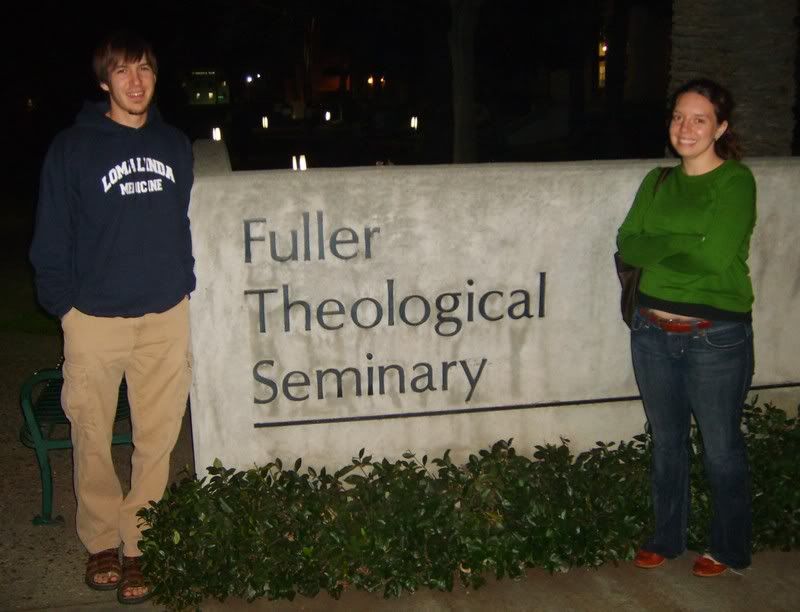"...all things were created by him and for him."
Occasionally I hear a theology presented that just doesn't sit right with me even though I can't discern exactly why that is at first. This happened recently where I heard a theology presented which basically claimed that we have had a wrong understanding of the character of God and that Jesus' mission was to give us a correct understanding of God's character. Jesus' mission was to show that God is good and he is not a wrathful tyrant. In this system, sin was presented as a result of the misunderstanding. Part of the reason why I had a hard time articulating exactly what it was about this theology that seemed so wrong to me was that I agree that Jesus gives us a fuller and more accurate revelation of God's character than anything else. He is
after all, God incarnate. But I think it becomes very problematic when Jesus' entire mission is reduced to revealing the character of God and sin is reduced to a misunderstanding. This system turns the Fall of Man into one big misunderstanding and, in my opinion, does away with any doctrine of the atonement, save perhaps Abelard's Moral Influence Theory. It seems to empty the cross of its power by its "human wisdom." (1st Cor. 1:17) To me it basically says, if Adam and Eve would have just had more or better knowledge then the Fall never would have
occurred. Of course, it was desire for the knowledge of good and evil which led to the Fall in the first place.
Worst of all though, I think this system does away with the need for Christ.
After all, if sin is just a misunderstanding, then it is conceivable that an especially intelligent or enlightened person might come to the conclusion that God is good even without ever knowing anything about Christ. Maybe he would conclude this because of the beauty of nature or the pleasures of life. In this case, Christ would be unnecessary. In fact, the way in which this system was presented suggested to me that many Unitarians and liberal New-
Agers are probably more sanctified than most Christians because the kind of god they believe in might seem more loving (in human terms) than a God who would send a world-wide flood, destroy cities with fire or command His people to wage war. I think what was presented was a kind of salvation by knowledge instead of salvation based on our relationship with Jesus Christ. So if certain facts about who God is are what saves us then it seems that relationship with Jesus Christ becomes unimportant. Jesus is useful but ultimately superfluous in this system.
A few years ago, at
Asbury, I heard one of my more liberal-leaning classmates present a similar system (in that Jesus was superfluous). He argued that someone who loves and serves his neighbor, but who has never heard of Christ, is a better Christian than someone who has been converted to faith in Christ but who isn't as compassionate or giving. This kind of argument can be good if it inspires us to seek greater holiness and obedience to God but ultimately it has the same horrible ending as that "salvation based on knowledge" argument. While in the first argument salvation was based on knowledge of some general facts about God, now salvation becomes based on some general good works. In both systems Jesus is useful because he reveals correct facts and spurs us on to good works but Jesus in both systems is ultimately superfluous. He is unnecessary.
The only kind of theological system that will not lead to this is a system that sees Jesus as the beginning and end of all things and that does not underestimate man's
fallenness and therefore his need for Christ. Either the Fall and its effects can be undone by some new knowledge or works [the general] or else they can only be undone by a relationship with a particular Person, that is, the Lord Jesus Christ [the specific]. In this day and age, systems that make Jesus superfluous are attractive to many because they are less offensive to our liberal and pluralistic sensibilities. But any system where Jesus is superfluous is not a Christian system. Christ and His glory must be at the center of everything we believe and do.
Amen



